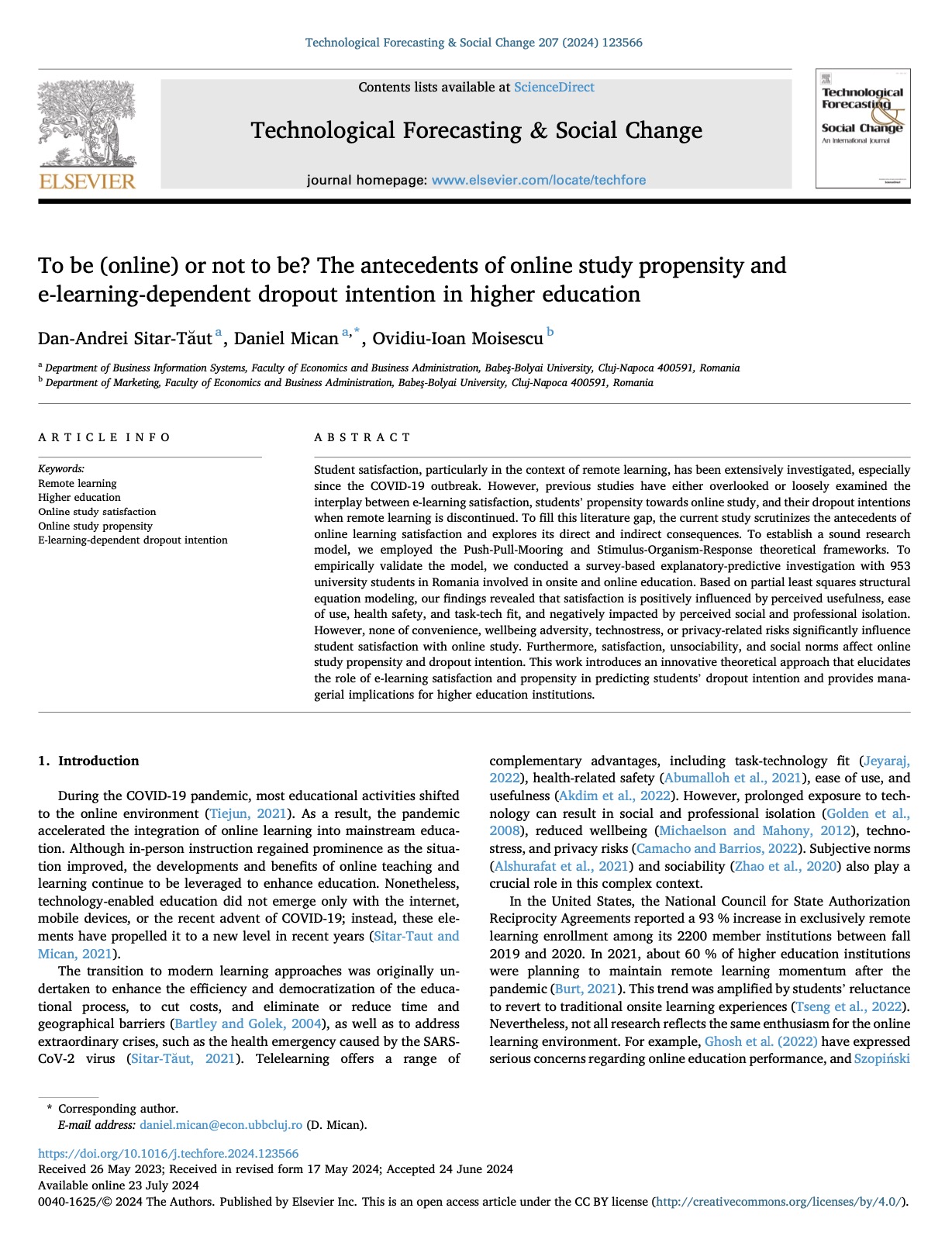|
|
|
Sitar-Tăut, D.A., Mican, D. & Moisescu, O.I. (2024) Technological Forecasting and Social Change [Core Economics, Q1]
Autor:
Cristina Alexandrina Stefanescu
Publicat:
26 Iulie 2024
Sitar-Tăut, D.A., Mican, D. & Moisescu, O.I. (2024) To be (online) or not to be? The antecedents of online study propensity and e-learning-dependent dropout intention in higher education. Technological Forecasting and Social Change, 207, 123566.
DOI: https://doi.org/10.1016/j.techfore.2024.123566
✓ Publisher: Elsevier
✓ Categories: Business; Regional & Urban Planning
✓ Article Influence Score (AIS): 2.149 (2023) / Q1 in all categories.
Abstract: Student satisfaction, particularly in the context of remote learning, has been extensively investigated, especially since the COVID-19 outbreak. However, previous studies have either overlooked or loosely examined the interplay between e-learning satisfaction, students' propensity towards online study, and their dropout intentions when remote learning is discontinued. To fill this literature gap, the current study scrutinizes the antecedents of online learning satisfaction and explores its direct and indirect consequences. To establish a sound research model, we employed the Push-Pull-Mooring and Stimulus-Organism-Response theoretical frameworks. To empirically validate the model, we conducted a survey-based explanatory-predictive investigation with 953 university students in Romania involved in onsite and online education. based on partial least squares structural equation modeling, our findings revealed that satisfaction is positively influenced by perceived usefulness, ease of use, health safety, and task-tech fit, and negatively impacted by perceived social and professional isolation. However, none of convenience, wellbeing adversity, technostress, or privacy-related risks significantly influence student satisfaction with online study. Furthermore, satisfaction, unsociability, and social norms affect online study propensity and dropout intention. This work introduces an innovative theoretical approach that elucidates the role of e-learning satisfaction and propensity in predicting students' dropout intention and provides managerial implications for higher education institutions.

inapoi la stiri  vezi evenimentele
vezi evenimentele  home
home 
|